#Electrical Engineering Projects
Explore tagged Tumblr posts
Text
Electrical Engineering Final Year Projects
If you need the top projects for your Electrical Engineering Final Year Projects you should consider Takeoff Projects. Through its project development program Takeoff Projects assists students to develop skill enhancing practical work which improves their professional outlook. Students at Takeoff Projects work on expert monitored projects that focus on modern technological fields including IoT and power systems with automation and renewable energy. Students can improve their technical skills while mastering practical experience by working on high quality final year projects. Students should become Takeoff Projects members to work on projects that recruit organizations will find impressive and which strengthen their resumes. Embark now on your road to an accomplished engineering profession.

Student career development heavily depends on the successful completion of Electrical engineering final year projects. The projects enable students to combine their theoretical understanding with real life solutions thus developing their technical competencies. Takeoff Projects delivers diverse innovative project solutions for power systems together with IoT applications and automation systems and renewable energy systems. Expert mentors at our organization guide students through each step of their projects so they finish their work without hesitation.
The pursuit of high quality electrical engineering final year projects enhances your employment prospects through strength enhancement of your resume. Takeoff Projects functions with hands on educational approaches to help students build practical abilities through their work with the organization. Our platform provides all necessary resources and supportive assistance to students who wish to create smart energy systems or embedded electronic products. Select a relevant project from your fields of interest to generate substantial changes within the sector.
Conclusion: If you're looking for the best Electrical Engineering Final Year Projects, Takeoff Projects is the perfect choice. Takeoff Projects guides students through expert assistance while giving innovative ideas and practical project training to guarantee project completion success. Future job opportunities become accessible due to the up to date technologies integrated in our projects. The three areas automation IoT and power systems are among our project selections that can support your education goals. The time to join Takeoff Projects for idea transformation has arrived. Use an outstanding final year project to establish a firm professional base for your future career.
0 notes
Text
Build Your Project for Electrical with Takeoff Projects
By having electrical engineers and well-trained administrative staff, Takeoff Projects can establish your electrical projects from the ground up. To guide you towards the right electrical project ideas to develop and implement the project for you we offer end-to-end services. We can design and construct an electrical project starting from its basic step or also clear your doubts and queries and start your current project on the path to its completion as per the deadline provided.

Our team of experts at Takeoff Projects has already assisted thousands of students in working on Projects For Electricalengineering for years now and we are also here to assist you. You can come to us with an idea of an electrical project that you have in mind or you can check out our portfolio for ideas.
The purpose of this project is to explain power quality that exists in the AC system and has emerged as a major issue because there has been a rapidly growing adoption of inductive loads, and electronic equipment (Linear and Nonlinear load). An undefined portion of the electrical energy daily because of the low power factor in the inductive loads that you use in the system. Therefore, the situation calls for an urgent need in order to avoid this waste of energy, poor power factor, and reactive power
Which leads to low quality, reliability, and safety issues coupled with high energy consumption. Any power system factor is constantly fluctuating because of variations in the quantity and the number of equipment that is being used at a given period. Difficult to always ensure proper load sharing between inductive and capacitive loads. Control methods for the Power Factor Correction (PFC) were born. The paper proposes an efficiently computable method of designing and catering to the need for the development of a single-phase as well as three-phase power factor.
#Mini Project For Electrical Engineering#Electrical Projects For Engineering Students#Electrical Project Topics#Final Year Electrical Project#Electrical Engineering Projects
0 notes
Text
Kevin vs. Quantum Mechanics
This is an autobiographical piece. Names have been changed for anonymity, but it's otherwise left be. ---
The class's first suspicion of Kevin was that he had, somehow, cheated his way up to this course. He just seemed perpetually confused, and strangely antagonistic of the professor. The weirdest example of this was when he asked what an ion was (in a third year EE class?), and was informed that it referred to any positively or negatively charged particle. It would have been strange enough to ask, but his reply of "Either? That doesn't sound right" sealed him in as a well known character in the class of 19 people.
The real tipping point in our perception of him during a lecture where the professor mentioned practical uses for a neutron beam, and Kevin asked if a beam could be made out of some other neutral material. When asked "Like what?", he replied "An atom with all of its electrons removed." When we pointed out that the protons would make that abomination extremely positively charged, he just replied with "So what if we removed those too?" and then was baffled when we informed him that would just be neutrons.
That's high school level chemistry. Not knowing it was so incredibly strange that I felt like something was off, so I asked him if he'd like to grab lunch. He accepted, we chatted, and I finally began to get a sense of his origin story.
See, Kevin wasn't a junior/senior electrical engineer like the rest of us. Kevin was, in fact, three notable things: A business major, a sophomore, and a hardcore Catholic. All three of those are essential to understanding his scenario.
What had begun all of this was actually a conflict with Kevin and his roommate. Kevin frequently had his fundamental belief in Absolute Good, Absolute Bad, and Absolute Anything pushed back on by his roommate, who was in STEM. Said roommate kept invoking quantum mechanics as his proof against Absolute Knowledge. Kevin was tired of having something that he didn't understand thrown at his convictions, so he decided to take a quantum course to settle things once and for all.
Despite not having any of the pre-reqs.
He'd actually tried to take quantum for physicists first, but the school's physics department wouldn't let him. It's actually pretty strictly regulated, because it is a mandatory class for physics majors. However, because quantum is not mandatory for electrical engineers, there aren't really any built in requirements for the class. It's just assumed that nobody would actually try to take it until their third year because doing so would the be the mental equivalent to slamming your nuts in the car door. Just, pure suffering for no good reason.
Apparently, the counselors had tried to talk him out of it, but if Kevin was one thing, it was stubborn. He'd actually had to sign some papers basically saying "I was warned that this is incredibly stupid, but I refused to listen" in order to take the class.
He was actually pretty nice, if currently unaware of how bad he'd just fucked up. I paid for the lunch, wished him the best, and reported back to the class discord. We'd all been curious about this guy's story, but now that I had the truth, I could share it with the world.
Feelings were mixed. Some people thought he was going to drop out any minute now. Others thought that he wouldn't, be also that convincing him to drop now, while he still could, was the only ethical thing. Others figured that a policy of non-interference was best: The counselors couldn't dissuade him, and if we tried to do the same, he'd probably just think it was STEM elitism trying to guard its little clubhouse. He'd figure out how hard things were, or he'd fail. Either way, it would help him learn more about the world.
We wound up taking the approach of non-interference. If nothing else, understanding his origins gave us more patience when he asked bizarre questions. He wasn't trying to waste our time, he was just trying to cram three years of pre-reqs into a one semester course. He did get a little bit combative sometimes, and we could tell that he was really wracking his brain to try and find some sort of contradiction or error that he could use to bring the whole thing down, but he never could.
First test came by, and he bombed it. Completely unprepared. He'd taken Calc I, but he didn't know how to do integrals yet (that was Calc II). Worse, he was far past the drop date. I imagine most people in his shoes would've stopped struggling. They'd realize they were fucked and just let themselves fail, at least salvaging their other classes grades in the process. Why waste resources on an unwinnable battle?
Kevin never asked questions like that. If he was stupid enough to try it, he was stupid enough to finish it. God bless him.
He invited me to lunch after the test and said that the class was more fascinating than he'd ever imagined, but he didn't know if he'd be able to pass it. He asked if I could help, and I said...maybe. I brought the request to the discord, and from the eight people there I got three volunteers who admired this dork's tenacity. He was in over his head, miles beneath the surface, but his fighting spirit was fucking glorious. If he was willing to go down swinging, we were willing to bust our asses trying to get him caught up.
Some of the stuff was just extra homework we gave to the guy. We told him he needed to learn integrals, stat. We sent him some copies of basic software that can be used to teach the basics of linear circuit equations, and he practiced that game like it was HALO. Just, hours sunk into it. Absolutely godlike.
He was still scrabbling for air at just the surface level of the class, but he'd gone from abysmal failure to lingering on the boundary between life and death. Other people in the class started to learn about Kevin's origin story, and our little circle of four volunteer tutors grew to six. Every day, he had someone trying to help him either catch up in some way, or finish that week's homework. He'd gone from being seen as a nuisance that wasted class time to the underdog mascot.
He was getting twelve hours of personal tutoring a week, on top of three hours of classes, on top of six hours of office hours, on top of the coursework. I don't think it's an exaggeration to say that this kid was doing 40 hours a week just trying to pass this one single class.
Second test comes around and he gets a 60. He's ecstatic. We're ecstatic. Kid's too young to take out drinking so we just order a pizza and cheer like he just won gold at the Olympics.
After that second test, things hit another tipping point. With so much catch-up under his belt, he was able to focus a lot more on the actual material for the class. A borderline cinematic moment happened when I was trying to get ahead on the homework so that I could put more hours in on my senior project. Nobody else had finished it yet because it wasn't due for another week, so the specifics of the problem I was working on were still a mystery. I went to the professor's office hours and get some pointers, but he wasn't willing to give good hints when the HW wasn't due for another week or so. He said I still had time to think about it, which was true, but I wanted to be able to think about other things. Kevin had watched the whole conversation, waiting for his turn to ask the professor more simple questions, but when I left I got a text from him telling me to hop on zoom.
Kevin had finished it earlier, because Kevin started all of his homework the moment it was assigned. He needed to, in order to make sure that he could get it done on time. He'd finished it the day before, and was able to walk me through it.
From student, to teacher. I'm not exaggerating when I say that he probably saved me eight hours on that assignment. I could've kissed him.
A month or two later, we took the final. As soon as we were done, we six asked Kevin how he did. He was nervous, there was so much new material for him in this class that his retention hadn't been great. Us six were also a little stressed: We were going to pass the class, but the final was hard.
We waited for the results.
And waited. And waited.
Finally, the scores were posted as a table, curve included. From our class of 19 people, 4 withdrew within the deadline, 4 failed, 1 got a C, 8 got B's, and 2 got A's. We could see that the curve for a C was set at 59.2% overall.
We called Kevin. He was crying. End score, 59.2%. Teacher curved the C exactly to his score.
It was a week into winter break so we couldn't gather the forces around for a party like last time, but we were all losing our shit. Kevin was losing his shit. He couldn't believe how stupid he was to try this course, he couldn't believe that six people busted their ass just to make sure he didn't die, and he couldn't believe that the professor basically just passed him out of sheer effort alone.
He said it was the stupidest thing he'd ever done, and while I doubt that, it was outrageously stupid. And yet, I've never been so invested in a fellow student before. I'm prouder of Kevin's C than I am of my own B. I was walking on sunshine for weeks after that. In theory, my senior project was building a functioning washing machine, but in practice, in my heart, it was helping Kevin pass Intro to Quantum for Electrical Engineers.
(And as an epilogue: No, he did not renounce Catholicism and become an atheist like his roommate had hoped. He did walk out changed. I think that being that wrong about something, and realizing it, was a pivotal moment for him. It's hard to be dogmatic once you realize that a lifetime of being wrong feels exactly like a lifetime of being right, right up until the last two seconds of it.)
#writing#Kevin#electrical engineering#college#memoir#biography#college stories#group project#quantum physics#senior project#people are awesome#Babylon-Lore#Babylon-TopPick
3K notes
·
View notes
Text




EP4, 2023 (1971). Apprentices at Audi's Neckarsulm site are celebrating the 150th anniversary of the facility with an electric restomod based on the NSU Prinz 4 that was made by NSU Motorenwerke in the Neckarsulm factory from 1961 to 1973. Audi inherited the facility when Volkswagen took over NSU. The rear of the Prinz, where a 30hp 2-cylinder engine once powered the car, is now home to a 240 hp (176 kW) electric motor. It comes from a 2020 Audi e-tron and gets its power from a battery from the plug-in hybrid Audi Q7 TFSI e quattro. The battery is fitted under the front hood, where the NSU once had its fuel tank
#Audi#NSU#EP4#NSU Prinz 4#restomod#electromod#restoration#rear engine#electric car#apprentice project#Neckarsulm#150th anniversary#one-off#concept#design study#prototype#1971#2023
382 notes
·
View notes
Text

Western Area Power Administration
“Workers from Western Area Power Administration de-energize high power lines Sept. 12, 2012 near the California State University-Sacramento so Corps contractors can safely install a seepage cutoff wall underneath the lines.
The Corps has built more than 20 miles of seepage walls into American River levees since 2000. Areas where construction was complicated by utilities, bridges or power lines were set aside for later construction.
The project is part of the American River Common Features project, a joint flood risk reduction effort between the Corps, the state’s Central Valley Flood Protection Board/Department of Water Resources and the Sacramento Area Flood Control Agency.” - via Wikimedia Commons
#western area power administration#wapa#us department of energy#DOE#energy#energy production#power#power lines#electrical engineering#american river common features project#california#wikipedia#wikipedia pictures#wikimedia commons#hydropower#high voltage#power transmission#electricity
15 notes
·
View notes
Text
Y’all loved the Electraboose edit, so what do you all think of this?? ( made for @sandybobandy & @kitkatisvibing )
Gonna be cross posted on tt! As always lol
#starlight express#stex revival#stex#StEx Electra#StEx Dinah#Dinah#dinah the dining car#electra the electric engine#sandy stop projecting yours and kits relationship onto electra & dinah#electra x Dinah#fast food#apparently their ship name is fast food#StEx edit#ship edit#edit
23 notes
·
View notes
Text


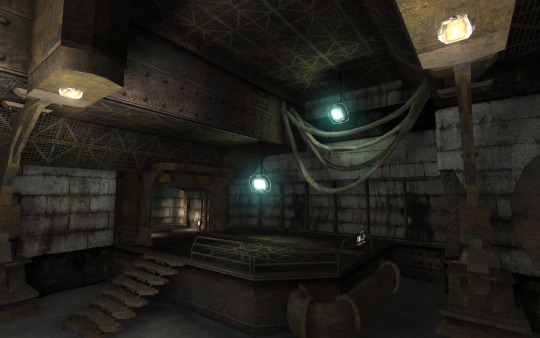
More shots of DM-Asbestos.

Here's a no-clip view of the map within a water volume

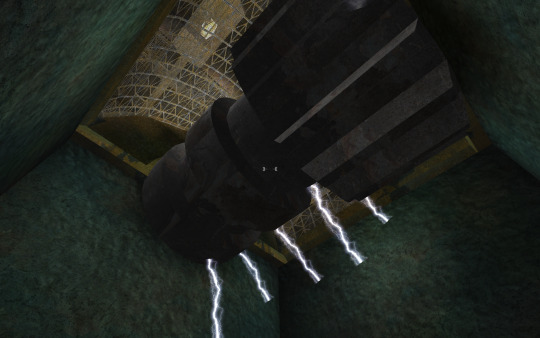
Some empty areas hidden inside of the floors.

One of the rooms has a "false skylight" showing that the building is actually encased inside another concrete structure.
#ut2004 art project#industrial#asbestos#dm-asbestos#liminal#backrooms#skylight#power#electricity#turbine#generator#fan#shadow#ut2004#unreal tournament#unreal tournament 2004#unreal engine#unreal engine 2
3 notes
·
View notes
Text



villains for blue spiderman
#aj art#spiderman#spider man#electric blue spiderman#spidersona#in this one green goblin + spiderman r brothers. goblin found out his brother was spiderman and an attempt to get him to stop risking his#life also became Superpowered but used the fucked up goblin chemicals. killed some of spidermans villains. things just went downhill from#there#ock helped in exchange for goblins (who flunked out of engineer college) help building the arms bc no real engineer would#help with his project calling it dangerous and crazy
2 notes
·
View notes
Text
Electrical Power System Projects
Are you seeking for novel Electrical Power System Projects. Takeoff Projects is here to help you! At 8 80 Innovators, our specialists provide students and working professionals guidance on translating ideas into reality through practice and exhaustive application. In the generation of power, distribution, micro grids, smart grid, our projects will help enhance you’re your competency and job prospects. Takeoff Projects makes it easy for novices and experts to accomplish their objectives, and guides them through every step. Begin your process of change with us now, and be a successful electrical engineer.

Remedial electrical power system projects are pivotal in determination of energy future. These projects are mainly in generation, transmission and use of electricity to minimize wastage. Takeoff Projects has numerous creative solutions to provide to students and working professionals developing a functional knowledge in this area. Our renewable energy systems coursework through to smart grids projects focus on developing your technical training portfolio and career prospects. Through hand-on experience we are able to ensure that each learner gets the practical experience.
At Takeoff Projects, we make a point of advising you on how to finish electrical power system projects efficiently. So, whether you’re an installer focused on solar, require power storage or want higher-efficiency energy systems, we have the necessary tools and resources for you. Our team of experienced professionals is at your service dedicated to the creation and successful realization of the project of any degree of complexity corresponding to the modern requirements of the industry. Takeoff Projects anticipates a much brighter future for electric engineers today and invites them to be part of its team.
Conclusion:
Electrical power system projects are an effective means of improving personal skills and acquiring practical experience in the sphere of energy. Remember when it comes to your business, takeoff projects are about offering you guidance, creativity, and practical workshops. Regardless of whether you are developing renewable energy or smart grids, or working on efficient distribution of power, our support means that each project will adhere to reliable standards within the industry. Get your journey of improving your life and delving into electrical engineering started with Takeoff Projects. Begin your journey today and let’s turn your concept into reality with confidence and achievement.
0 notes
Text
Toward a code-breaking quantum computer
New Post has been published on https://thedigitalinsider.com/toward-a-code-breaking-quantum-computer/
Toward a code-breaking quantum computer


The most recent email you sent was likely encrypted using a tried-and-true method that relies on the idea that even the fastest computer would be unable to efficiently break a gigantic number into factors.
Quantum computers, on the other hand, promise to rapidly crack complex cryptographic systems that a classical computer might never be able to unravel. This promise is based on a quantum factoring algorithm proposed in 1994 by Peter Shor, who is now a professor at MIT.
But while researchers have taken great strides in the last 30 years, scientists have yet to build a quantum computer powerful enough to run Shor’s algorithm.
As some researchers work to build larger quantum computers, others have been trying to improve Shor’s algorithm so it could run on a smaller quantum circuit. About a year ago, New York University computer scientist Oded Regev proposed a major theoretical improvement. His algorithm could run faster, but the circuit would require more memory.
Building off those results, MIT researchers have proposed a best-of-both-worlds approach that combines the speed of Regev’s algorithm with the memory-efficiency of Shor’s. This new algorithm is as fast as Regev’s, requires fewer quantum building blocks known as qubits, and has a higher tolerance to quantum noise, which could make it more feasible to implement in practice.
In the long run, this new algorithm could inform the development of novel encryption methods that can withstand the code-breaking power of quantum computers.
“If large-scale quantum computers ever get built, then factoring is toast and we have to find something else to use for cryptography. But how real is this threat? Can we make quantum factoring practical? Our work could potentially bring us one step closer to a practical implementation,” says Vinod Vaikuntanathan, the Ford Foundation Professor of Engineering, a member of the Computer Science and Artificial Intelligence Laboratory (CSAIL), and senior author of a paper describing the algorithm.
The paper’s lead author is Seyoon Ragavan, a graduate student in the MIT Department of Electrical Engineering and Computer Science. The research will be presented at the 2024 International Cryptology Conference.
Cracking cryptography
To securely transmit messages over the internet, service providers like email clients and messaging apps typically rely on RSA, an encryption scheme invented by MIT researchers Ron Rivest, Adi Shamir, and Leonard Adleman in the 1970s (hence the name “RSA”). The system is based on the idea that factoring a 2,048-bit integer (a number with 617 digits) is too hard for a computer to do in a reasonable amount of time.
That idea was flipped on its head in 1994 when Shor, then working at Bell Labs, introduced an algorithm which proved that a quantum computer could factor quickly enough to break RSA cryptography.
“That was a turning point. But in 1994, nobody knew how to build a large enough quantum computer. And we’re still pretty far from there. Some people wonder if they will ever be built,” says Vaikuntanathan.
It is estimated that a quantum computer would need about 20 million qubits to run Shor’s algorithm. Right now, the largest quantum computers have around 1,100 qubits.
A quantum computer performs computations using quantum circuits, just like a classical computer uses classical circuits. Each quantum circuit is composed of a series of operations known as quantum gates. These quantum gates utilize qubits, which are the smallest building blocks of a quantum computer, to perform calculations.
But quantum gates introduce noise, so having fewer gates would improve a machine’s performance. Researchers have been striving to enhance Shor’s algorithm so it could be run on a smaller circuit with fewer quantum gates.
That is precisely what Regev did with the circuit he proposed a year ago.
“That was big news because it was the first real improvement to Shor’s circuit from 1994,” Vaikuntanathan says.
The quantum circuit Shor proposed has a size proportional to the square of the number being factored. That means if one were to factor a 2,048-bit integer, the circuit would need millions of gates.
Regev’s circuit requires significantly fewer quantum gates, but it needs many more qubits to provide enough memory. This presents a new problem.
“In a sense, some types of qubits are like apples or oranges. If you keep them around, they decay over time. You want to minimize the number of qubits you need to keep around,” explains Vaikuntanathan.
He heard Regev speak about his results at a workshop last August. At the end of his talk, Regev posed a question: Could someone improve his circuit so it needs fewer qubits? Vaikuntanathan and Ragavan took up that question.
Quantum ping-pong
To factor a very large number, a quantum circuit would need to run many times, performing operations that involve computing powers, like 2 to the power of 100.
But computing such large powers is costly and difficult to perform on a quantum computer, since quantum computers can only perform reversible operations. Squaring a number is not a reversible operation, so each time a number is squared, more quantum memory must be added to compute the next square.
The MIT researchers found a clever way to compute exponents using a series of Fibonacci numbers that requires simple multiplication, which is reversible, rather than squaring. Their method needs just two quantum memory units to compute any exponent.
“It is kind of like a ping-pong game, where we start with a number and then bounce back and forth, multiplying between two quantum memory registers,” Vaikuntanathan adds.
They also tackled the challenge of error correction. The circuits proposed by Shor and Regev require every quantum operation to be correct for their algorithm to work, Vaikuntanathan says. But error-free quantum gates would be infeasible on a real machine.
They overcame this problem using a technique to filter out corrupt results and only process the right ones.
The end-result is a circuit that is significantly more memory-efficient. Plus, their error correction technique would make the algorithm more practical to deploy.
“The authors resolve the two most important bottlenecks in the earlier quantum factoring algorithm. Although still not immediately practical, their work brings quantum factoring algorithms closer to reality,” adds Regev.
In the future, the researchers hope to make their algorithm even more efficient and, someday, use it to test factoring on a real quantum circuit.
“The elephant-in-the-room question after this work is: Does it actually bring us closer to breaking RSA cryptography? That is not clear just yet; these improvements currently only kick in when the integers are much larger than 2,048 bits. Can we push this algorithm and make it more feasible than Shor’s even for 2,048-bit integers?” says Ragavan.
This work is funded by an Akamai Presidential Fellowship, the U.S. Defense Advanced Research Projects Agency, the National Science Foundation, the MIT-IBM Watson AI Lab, a Thornton Family Faculty Research Innovation Fellowship, and a Simons Investigator Award.
#2024#ai#akamai#algorithm#Algorithms#approach#apps#artificial#Artificial Intelligence#author#Building#challenge#classical#code#computer#Computer Science#Computer Science and Artificial Intelligence Laboratory (CSAIL)#Computer science and technology#computers#computing#conference#cryptography#cybersecurity#defense#Defense Advanced Research Projects Agency (DARPA)#development#efficiency#Electrical Engineering&Computer Science (eecs)#elephant#email
5 notes
·
View notes
Text
How Engineering Projects Ideas to contribute your academic year?
Engineering Projects Ideas from "Takeoff Edu Group" provide proper guidance and support for your project needs, which really helps the students during their Academic year. With these engineering project Ideas, students find how to analyze and solve problems and test their own ideas. These projects also assist the students how to work together in teams. Here we support students to use what they have learned in class to solve real-time problems. They also acquire a knowledge of dividing tasks, time management, and share ideas with each other. This is most important for the students who are working well in the future. Plus, by working on these we provide lots of projects with an excellent conception which helps the students more creative and come up with new ideas.

Top 5 Engineering Project Ideas for Final Year Students
Smart Home Automation System:
A smart home system converts how homes are control by connecting devices and appliances so they can be flexible workplaces, simplified, and energy efficiency. It allows house owners to easily operate lights, security cameras, temperature, and other things using their phones or voice commands.
Renewable Energy Monitoring:
The Renewable Energy Monitoring keeps an eye on renewable energy sources like solar and wind power make sure the best performance and efficiency. Always analyzing how much energy is generated and consumption, it helps to make the most of renewable energy while reducing waste.
Medical assistive devices
Medical assistive devices are tools that make life easier for people with disabilities or health problems. They can include be things like wheelchairs, hearing aids, or artificial limbs, all made to improve quality of life and more independently.
Water purification system
A water purification system is a machine that cleans waste water to make it safe for drinking and additional uses. It extract out bad stuff and virus, leaving the water fresh and healthy. These systems are important for distribute clean and safe drinking water to people everywhere in the world.
Smart city infrastructure:
Smart city infrastructure means using fancy technology and systems improve urban living. This includes things like clever traffic lights, buildings that save energy, and fast internet, and high-speed internet access to make cities safer and work better for the people who live there.
Conclusion
At Takeoff Edu Group, we're providing innovative and exciting Engineering Project Ideas with proper guidance and support. Our goal is to inspire the next generation of pioneers, which helps the students explore their passions, learn, and take their ideas to new heights in engineering.
Here, you’ll not only gain valuable technical skills but also have the opportunity to learn new things, that will help you to achieve your goals easily. Let us work together to make your project successful.
#Engineering Project#Engineering Projects#Engineering Project Ideas#Electrical Engineering Projects#Coding Project Ideas
0 notes
Text


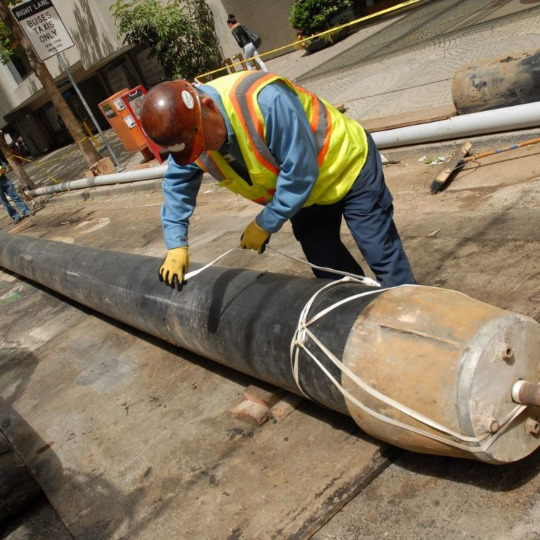


A Comprehensive Guide to Horizontal Directional Drilling Methods:Horizontal Directional Drilling (HDD) has revolutionized the way we install and maintain underground infrastructure. This trenchless technique utilizes a directional drilling approach, employing a HDD drill with a steerable head, to create a precise pathway beneath the surface. But the world of HDD isn't a one-size-fits-all solution. This blog post delves into the diverse methods used in HDD, focusing on their applications in the Kingdom of Saudi Arabia (KSA) and beyond.
#construction#construction news#uae#info#hdd#Directional drilling#Thrust boring#HDD#HDD Drill#HDD Electrical#HDD Telecom#HDD Engineering#HDD Drilling#HDD Contracting#pipe jacking#pipe ramming#Hydrualic pipe jacking#Horizontal directional drilling#Horizontal directional drilling in saudi arabia#Horizontal directional drilling in ksa#Horizontal directional drilling in jeddah#Horizontal directional drilling in riyadh#Horizontal directional drilling in dammam#Horizontal directional drilling in bahrain#horizontal directional drilling project#trenchless#trenchless crossing#trenchless in ksa#trenchless in saudi arabia#NDRC crossing
2 notes
·
View notes
Text

Discover the backbone of modern engineering! Our Electromechanical Companies category features in UAE's leading providers of integrated solutions. From electrical installations to HVAC systems, find trusted partners for your projects. Visit TradersFind and connect with the best today!
🛠️ Connect with us on WhatsApp at +971 56 977 3623 to discuss your Electromechanical requirements.
To browse our extensive Electromechanical category and connect with verified companies in UAE. https://www.tradersfind.com/category/electromechanical-companies
Electromechanical Companies In UAE
#electromechanical#engineering#uae#innovation#hvac#electrical#mechanical#automation#technology#b2b#solutions#construction#projects#efficiency#quality#reliability#expertise#engineeringservices#tradersfind#connectnow
2 notes
·
View notes
Text
At work they seem to think I'm an electrical engineer. I'm just. Just so baffled by this. If there's one thing I'm not, surely it's that.
Like, ok, the mechanical engineers think I'm a mechanical engineer, and that's fine. The bosses think everyone is a mechanical engineer, or can be, given half a chance. They think the actual mechanical engineers--the ones with masters degrees in mechanical engineering--are simply the most experienced, but that anyone else could do their job slightly worse but basically successfully. But the mechanical engineers treat me like I'm one of them in a way they don't with other physicists, trust me with tools that they wouldn't trust others with, one of them even gave me admin privileges to some equipment that they won't give my supervisor admin privileges to. Apparently they thought I was going to be working 3/4 time as a physicist and 1/4 time as a laser engineer when I was hired; my previous employer killed that possibility (the one real concession he got with his threatened lawsuit was that I'm not allowed to work on the insides of any lasers for two years) but that's still how they think of me, as basically one of them. But that's just the mechanical engineers who see me that way.
When I applied I said I had mechanical engineering experience and software experience. I hate software, but you've gotta put that in your resume, if you can do it even a little bit. My supervisor remembered that and took it seriously, and I do actually do some software engineering when I have to, but the bosses mainly don't want me working on software.
But somehow the bosses think I'm an electrical engineer, instead. That I should be a major bridge between the electrical engineering department and physics. That that's my rare expertise rather than (in my opinion) my most embarrassing incompetence, the one thing I try to avoid having come up in job interviews because I can't find a positive spin for it.
I mean. It's kind of good, because the company president sees himself as being an electrical engineer as well as a physicist. So he's like, oh, we have this extra competency in common! And it's also kind of good that the skillset that I'm the least secure about, other people have convinced themselves that I'm good at--although I think that's partly because they haven't really asked that much of me, and partly because I know a bit about rf/mw. But, like, I can barely design an inverting amplifier or a low pass filter and then put it together with large components from a kit (although it'll look reasonably nice if I do, because my soldering is decent). And I've only actually laid out a PCB for manufacturing exactly once in my entire life. But it's, idk, weird. I rarely get anything that looks like imposture syndrome, but I can feel it creeping in a little bit here. (Except, of course, it's justified.)
#you may wonder then: if they see me as an electrical engineer surely that implies they're assigning me electrical engineering projects#so how do I get those done in such a way that the bosses are pleased with me?#because surely they're pleased with me if they've--after 10 months of employment--convinced themselves that I can do this?#well: I delegate these tasks to one of the actual electrical engineers rather than doing them myself#(which is the same thing my supervisor does--but unlike the bosses I don't think my supervisor thinks I'm an electrical engineer)#(then again the bosses think my supervisor is this superstar who's excellent at literally everything#so I guess this MUST be a winning strategy)#the engineers are considered more or less support staff to the physicists so the electrical engineer that I'm delegating to#sees picking up assignments like this from physicists who don't want to do it themselves as a core part of his job#rather than feeling that I'm taking time away from his own projects or something#I don't know how the bosses see it though if they think this shows MY competence as an electrical engineer
4 notes
·
View notes
Text
Electric Vehicle (EV) Projects for Students - Takeoff Projects
Electric Vehicles (EVs) are the future of transportation. They run on electricity instead of petrol or diesel, which helps reduce air pollution and saves fuel costs. EVs are eco-friendly, quiet, and cost-effective in the long run. Many companies and students are now working on Electric Vehicle projects to understand how they work and how to improve them.
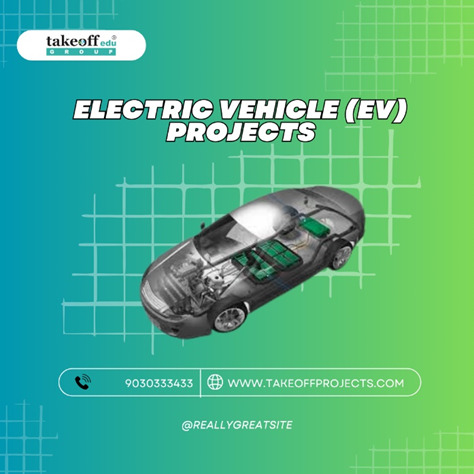
At Takeoff Projects, we help students and professionals build real-time EV projects. Our projects include building mini electric cars, smart charging systems, battery monitoring, and energy-saving designs. We focus on both hardware and software parts of EVs. Our team explains every topic in a simple way so that even beginners can understand. We also support you with step-by-step guidance, project kits, and final reports.
Electric Vehicle projects help students learn about motors, batteries, controllers, sensors, and charging systems. These skills are useful for jobs in the EV industry, which is growing fast in India and across the world. With the help of Takeoff Projects, students can build working models and gain confidence in their engineering knowledge.
#Electric Vehicle Projects#EV Projects for Students#Takeoff Projects EV#Battery Management System Projects#Electric Car Projects#IoT in EV#EV Charging System Projects#Student Engineering Projects#EV with GPS Tracking#Renewable Energy Projects
0 notes
Text
Now this is a much more fun and interesting industrial map! DM-Asbestos seems to be set inside an old power station and has lots of interesting scenery, water pools, big fans, huge generators and pretty glass windows overhead.






Here's a hidden room with some goodies, I haven't seen this in too many maps!

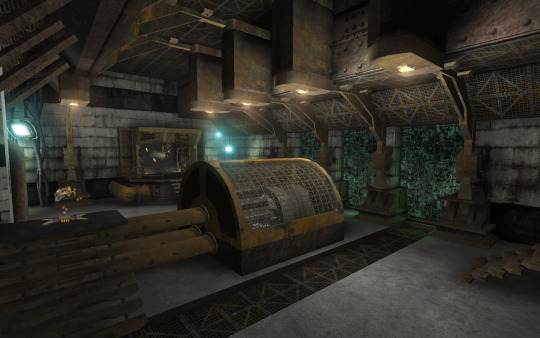
Some of the cool big-ass generators.
#ut204 art project#asbestos#dm-asbestos#power station#power#electricity#energy#turbines#generators#industrial#water pools#cooling#ut2004#unreal tournament#unreal tournament 2004#unreal engine#unreal engine 2
1 note
·
View note